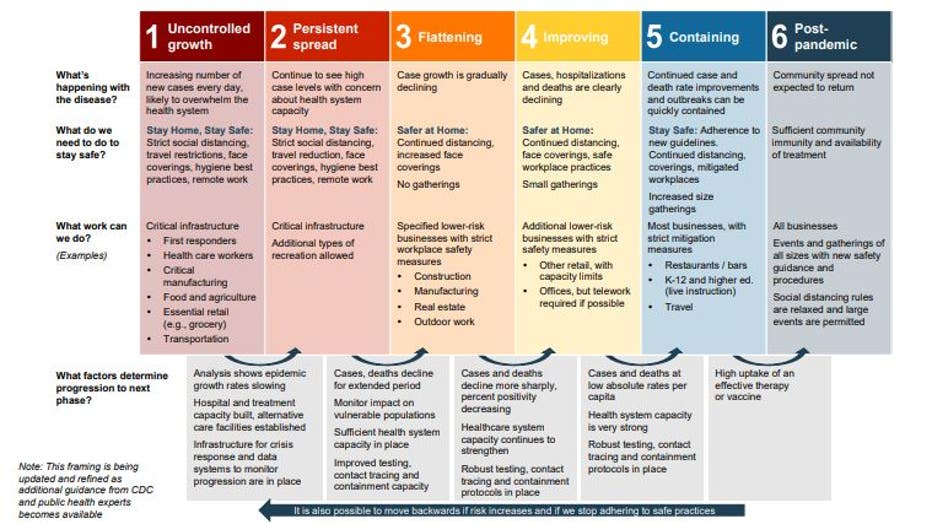As it starts reopening, a new report says Michigan is still woefully behind on testing
Michigan is woefully behind on its necessary daily testing of new COVID-19 cases, a new report found.
Even as the state has made large gains in its ability to screen residents, it would need to ramp up its testing capacity by five times to meet the recommended target established by the Harvard Global Health Institute (HGHI).
Currently, Michigan is testing approximately 8,500 people a day with enough lab capacity to complete 16,000 tests. It also has set a target of completing 15,000 tests a day. But per Harvard's estimate, daily testing needs to increase to 58,000 daily tests in Michigan. The Department of Health and Human Services public information officer says a lack of available equipment has hampered the state's ability to increase testing from the start.
"From the beginning, we definitely struggled to get more tests. There was not enough going around, we were competing with other states who started (testing) earlier," Lynn Sutfin said. "We have seen some improvements in the supply chain, but it's definitely not what we need."

For the state to reopen, it will need to ramp up its screening infrastructure. So far, the state health department has prioritized its testing for people showing symptoms similar to the virus and workers with higher risks of exposure to the virus, like hospital nurses and bus drivers. Guidelines from the Centers for Disease Control and Prevention recommended testing those populations first, before moving on to the general populace.
But this imperfect method paints an uneven picture of where COVID-19 is in Michigan. Screening those populations will naturally render a higher percentage of positive cases. But for Michigan to reopen safely, it will need to expand testing throughout the state to better track the virus, experts say.
"When you're testing based on particular groups, do you really know who's positive?" asked Dawn Misra, chair of the Epidemiology and Bio-Statistics Department at Michigan State University. "If you're not doing enough testing, what parts are you missing? Are you missing a whole other group, like an iceberg?"
So far, Michigan has expanded the requirements to get tested individuals with mild symptoms, while the city of Detroit now offers a test to any of its residents. The state has also been aided by pharmacy chains like Walmart and CVS, where testing has been offered in more populated parts of the state. But it still isn't enough.
RELATED: Life after COVID-19 won't be normal for Michigan workers as manufacturing needs system overhaul
Michigan isn't alone in its lack of COVID-19 screening. Almost every state in the country misses its daily testing target. Of states with larger higher mortality rates, Rhode Island comes closest - and it's not even 50% of the way there. With the eighth-highest mortality rate in the country, Rhode Island is testing 2,744 people a day but needs to ramp up screening to 6,723 tests.
Comparatively, Michigan has the sixth-highest mortality rate but is only testing 15% of what it should.
If supply chains for acquiring testing materials haven't been disrupted, states have needed to outcompete each other for supplies. Sutfin believes as Michigan's outbreak worsened in March, companies started prioritizing the state and directing more supplies to its providers.
Since its positive case rate peaked in April, the state has seen a precipitous decline in new COVID-19 cases. Its death rate has also fallen. In response to the encouraging numbers, Gov. Gretchen Whitmer has loosened restrictions on travel, construction and said manufacturing could restart May 11. Along with her newest rule came the MI Safe Start Plan, which outlined steps for phasing in the economy and the factors that will determine when that can happen.
While the case and death declines were among factors being considered, so was more testing and contract tracing. Based on the chart, however, it's unclear how much testing the state will require.

If you're Nigel Paneth, another epidemiology expert out of MSU, there's only one solution forward: test everyone.
"It is my view that we have to test every man, woman, and child," said Nigel Paneth, a professor of epidemiology and biostatistics at Michigan State University. "We need universal testing. It's the only way I can see us getting out of this situation."
Labeling himself a "testing extremist," Paneth said everyone could learn from a town in Italy with a population of 3,300 people. As Italy became the face of the world's hardest-hit countries in early March, the town Vo Euganeo went into lockdown and tested every one of its residents after reporting the region's first death. By March 13, it had completely eradicated the disease.
"People are potentially infectious everywhere, symptoms or no symptoms, we just don't know," Paneth said. "This (testing everyone) is a massive undertaking, but we're losing 2,000 people a day. What more of a kick in the ass do we need?"
Jack Nissen is a reporter at FOX 2 Detroit. You can contact him at (248) 552-5269 or at Jack.Nissen@foxtv.com

